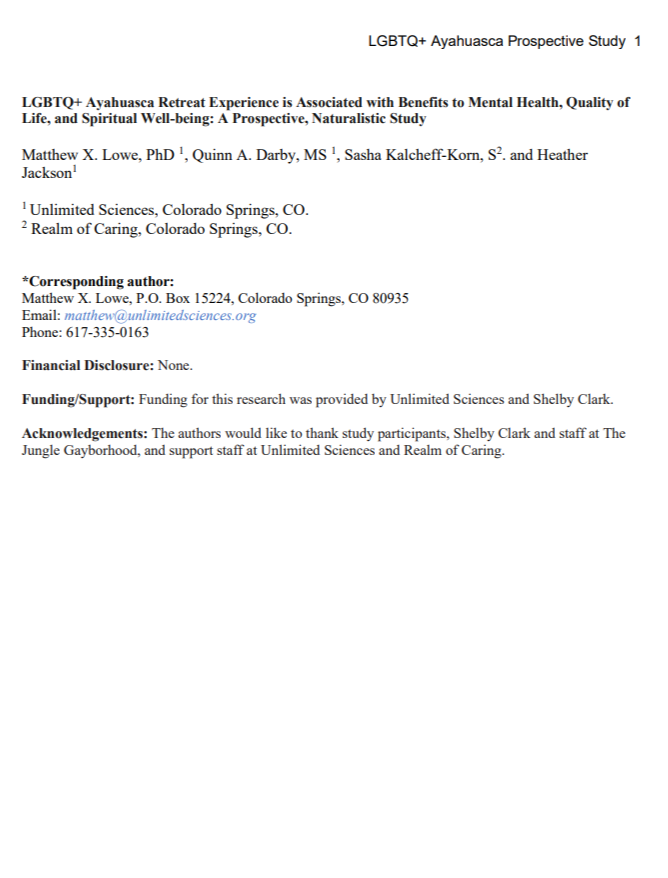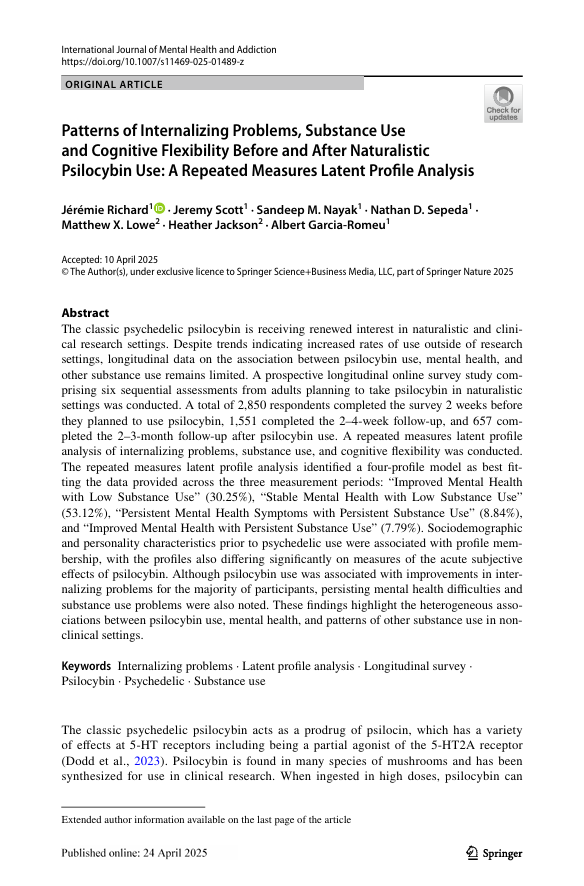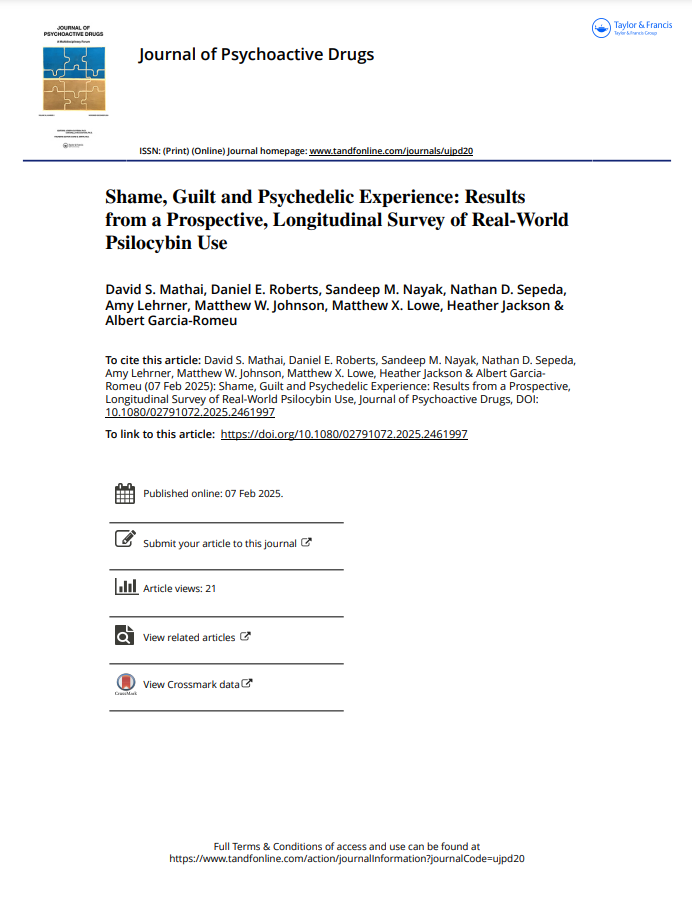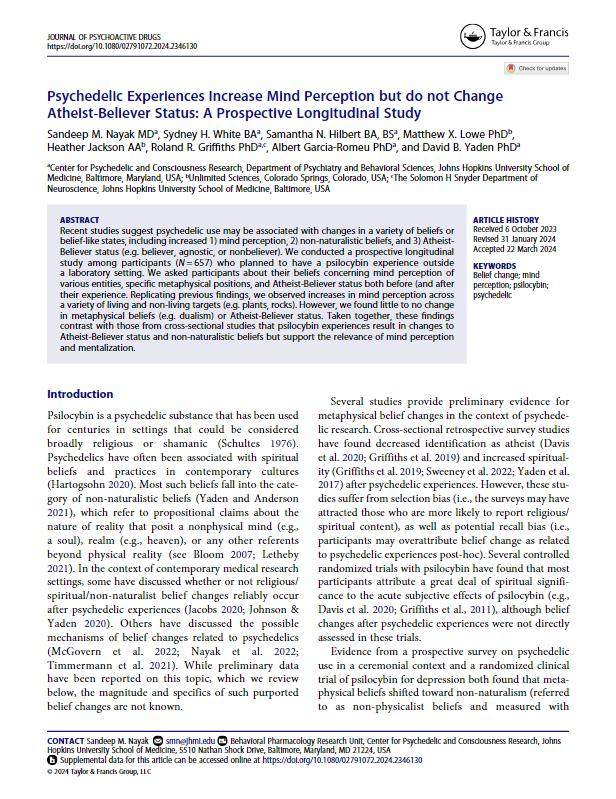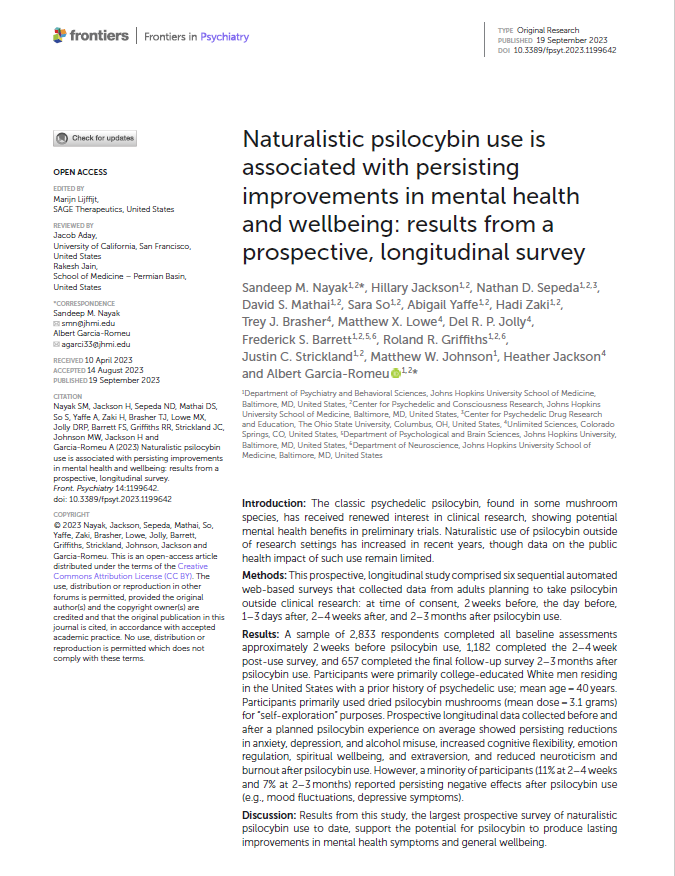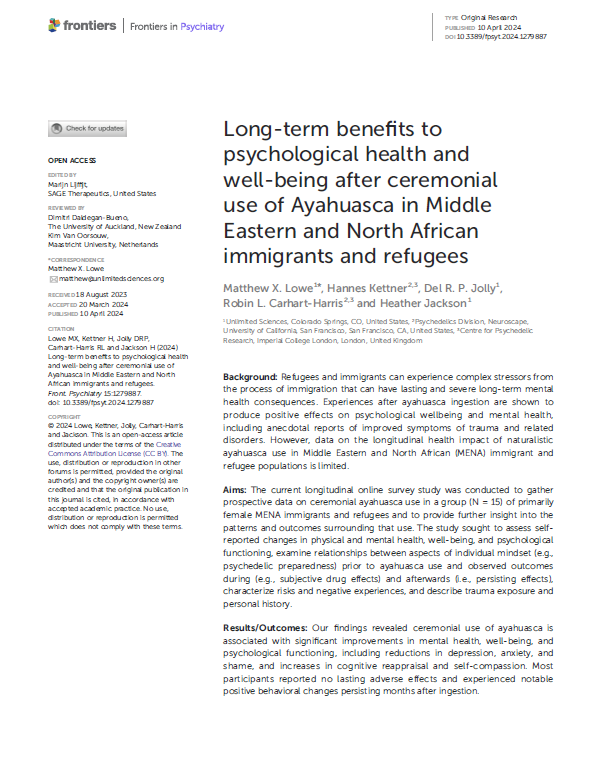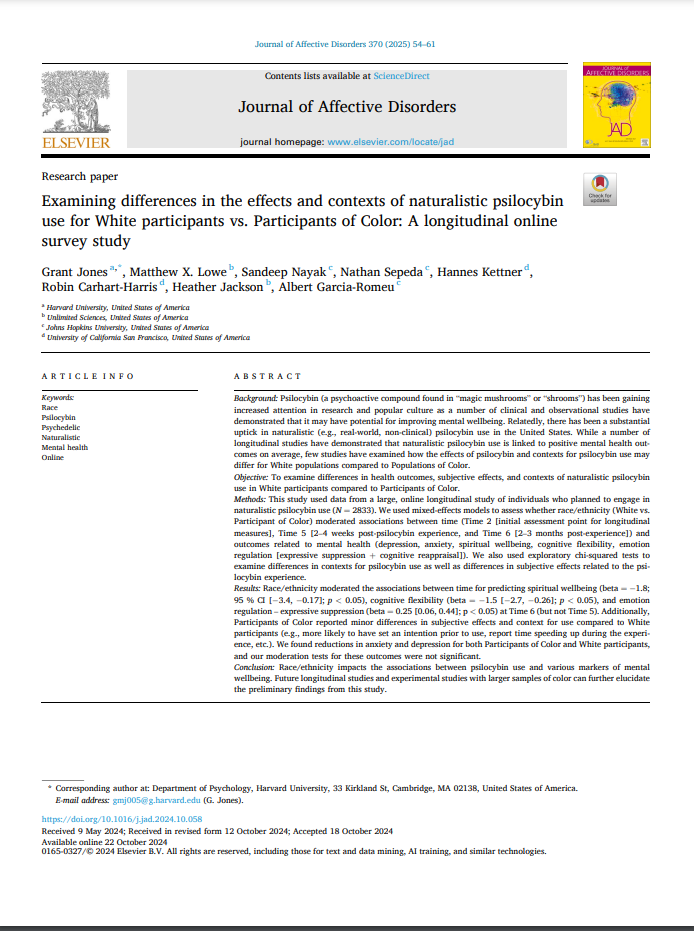Research Library
Knowledge That Builds.
Science That Serves.
Data You Can Trust.
Explore our growing library of studies, reports, and publications. Each piece of psychedelic science is designed to inform practitioners, participants, policymakers and curious minds alike.
Our comprehensive collection of peer-reviewed psychedelic research features impactful studies on a wide range of conditions and psychedelic substances.
You can also talk with us about the research. Book a free call with our Psychedelic Info Line for answers to your psychedelic questions.
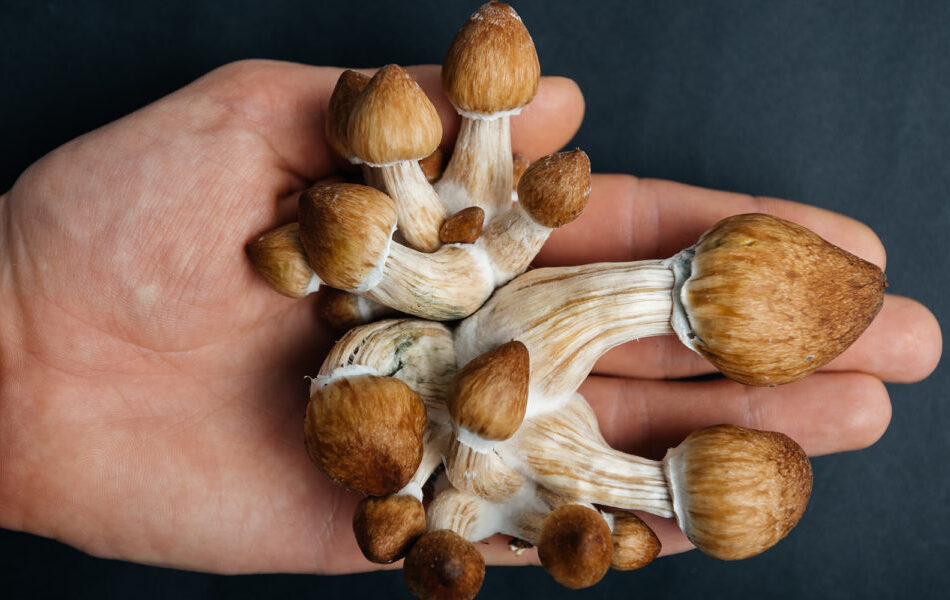
Our Latest Published Research
Use the Search Fields to Find Information
Page 1 of 55
Naturalistic psychedelic use and changes in depressive symptoms
Abstract While growing evidence suggests that psychedelic-assisted therapy may have antidepressant effects in certain populations, little is known about the effects of psychedelic use on depressive symptoms in non-clinical, naturalistic settings. This observational cohort study included a large sample of US residents (18–50 years old) and longitudinally evaluated the relationships between naturalistic psychedelic use […]
September 3, 2025
Health-related behavioral changes following the use of psychedelics in naturalistic settings
Abstract Objective Psychedelics have been increasingly studied for their potential to influence mental health and well-being, yet their relationship with broader health behaviors remains underexplored. This study examined associations between lifetime psychedelic use and health-related behaviors, including substance use, dietary habits, and impulsive tendencies. Methods Using an extensive cross-sectional online survey, we analyzed […]
Quantitative and qualitative influences of spiritual connection and natural imagery on perception of art in clinical psychedelic dosing settings
Abstract Psychedelic clinical study environments are frequently visually manipulated, such as art; however, there has been little study of how the art selected for display impacts individual responses to the overall setting. To examine how individual self-identities shape perceptions of art used in a clinical psychedelic dosing environment, this study used a community-engaged mixed-methods approach. […]
August 28, 2025
Psychedelics in the Treatment of Substance Use Disorders and Addictive Behaviors: A Scoping Review
Purpose of Review Substance use disorders (SUDs) and other addictive behaviors such as gambling disorder are globally prevalent and remain significant public health concerns. Since the 1950s, studies have examined psychedelics in the treatment of addictive behaviors with these studies demonstrating safety, feasibility, and potential therapeutic benefit. This review aims to synthesize research reports from […]
February 11, 2025
Main targets of ibogaine and noribogaine associated with its putative anti-addictive effects: A mechanistic overview
Background There is a growing interest in studying ibogaine (IBO) as a potential treatment for substance use disorders (SUDs). However, its clinical use has been hindered for mainly two reasons: First, the lack of randomized, controlled studies informing about its safety and efficacy. And second, IBO’s mechanisms of action remain obscure. It has been challenging […]
August 9, 2024
Page 1 of 55

